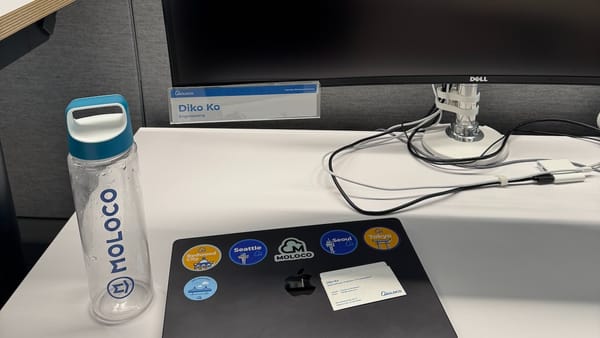Bottom-up
A few days ago, a Twitter thread was getting popular from my timeline.
구글은 참 좋은 회사인건 맞다. 주당 실제 일하는 시간 평균 30-40에 괜찮은 페이에 쉬는날많고. 5시 넘어 일하는 사람 한명도 없다. 화려한 오피스 가서 밥먹고 나오면 정말 으쓱한 느낌든다. 근데 반면에 참 괴로운 것들이 있는데...
— 박상민 / Sang-Min Park (@sm_park) February 4, 2022
The story was in Korean, but it can be summarized as follows
- Google is a great company, but sometimes its bottom-up culture is exhausting.
- A tremendous amount of time should be invested in the alignment of people and teams.
Many exciting and insightful tweets followed. I, myself, also had served tremendous days as a manager, producer, and CEO. For an extended period, my interests were in managing projects and people: making things done. And my current work term (that I requested when I joined the company) is "I won't do that anymore."
When I worked as the producer of Yogurting, I had no experience leading that size of the project. We made a lot of progress and failures, but the most important lesson that I could get from those days was the cost of changes was truly expensive.
My next company was a western game studio based in Scottland. I was impressed by their efforts to minimize the change: a bunch of documents, formal tests and iterations, and strict sign-off processes. I thought I found the ultimate answer. However, I only learned that we, human beings, cannot predict/plan everything, and stubbornness could be a hurdle for any (truly) required alternations.
We all know that the 2010s was the (maybe still in some domains) age of "Agile." Eric Ries's "The Lean Startup" was the bible of startups. We embraced the inevitability of the change and tried to minimize the cost of the change. Slightly baptized by the US startup cultures, I founded my own company in Korea and hard-sold agility above all other things. Many worked well; I could have many good days. But I learned that not all people could enjoy it.
People are the core of the culture, and we cannot mandate them. We might build a company of a specific culture with well-fitted people only. But in many cases, we cannot afford the luxury - especially in the fast-growing company.
Any organization that designs a system (defined broadly) will produce a design whose structure is a copy of the organization's communication structure. — Melvin E. Conway
Leadership is critical to design the structure and communication process. And the organization's product and performance exactly reflect it. I understood it from the abyss of my soul, but now, I know it's not mine. Years ago, I realized how I love to know something, grok something A to Z. However, directing and managing people were not there.
I've been saying why I love the Bay Area, and most of them should be from its richness. Not only money but also a lot of outstanding talents and leadership; I don't need to burn out my energy on something I'm not good at. If not, still, we can freely walk out anytime. Not many places have the luxury - I only long for the surplus, the luxury that I can do only what I love.
P.S.: I'm not saying this because I got the green card yesterday. :)



